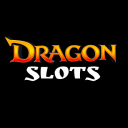How to Play Blackjack: Rules and Tips
At face value, blackjack can look like a difficult game to play. However, it is like riding a bike, as once you know how to play blackjack using this guide, you will never forget. We tell you about the basics of casino blackjack, all the rules you need to know, odds, payouts, and more. So, ready to learn how to play blackjack so you can start winning bets against the dealer? Then read on!
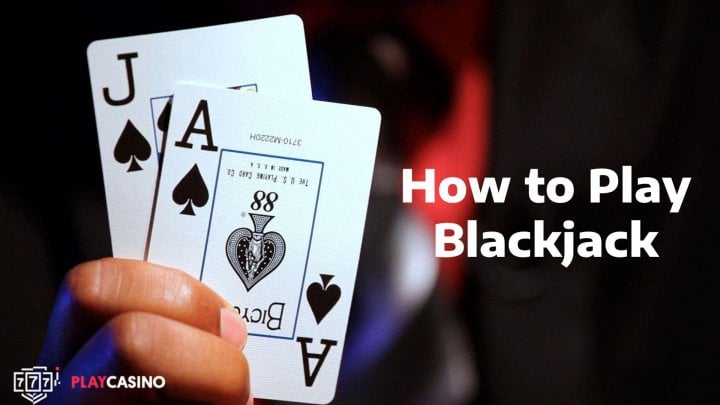
The Basic Blackjack Rules - How to Play Blackjack
The main objective of the game of blackjack is to get as close to a score of 21 as possible. The closer you get, the more likely you are to beat the dealer, who is also trying to get as close to 21 as possible. But if you go over 21, you’re bust and lose. There is also the possibility of a draw – when you get the same value as a dealer. This is called a push.
To play blackjack, you need several decks of cards – the most common number of decks is six, but the number can be anywhere between one and eight. After you place your original wager in the betting box on the table, the dealer deals two cards initially to each player and himself. Those cards are dealt face-up. Each player adds those cards' combined face value scores and then decides whether to request additional cards to get as close to 21 as possible. Players can continue requesting further cards until they decide to stick with their score, reach 21, or their score exceeds 21 and are bust.
In a brick-and-mortar casino, you sit at a table with up to six other players, with the dealer in front of you. You’re all playing against the dealer – not each other. You play left to right. Then, the dealer gets their chance at the end. If you beat the dealer, you win money – usually at a ratio of 1:1. So you receive your initial stake and the same amount on top. For example, a $50 stake that wins gives you back that stake plus your winnings of $50.
The only exception is if the player has “blackjack”, which is 21 with two cards (an Ace and a ten or picture card) when the most used pay-out ratio is 3:2. You will find that this ratio is advertised before you start playing.
You will typically find that a minimum bet is $5, and the maximum is $500. Again, this will vary based on where you’re playing, but this is the most common.
The Odds and House Edge of the Game of Blackjack
The odds of winning in blackjack are close to 50% (generally, 46-48% is quoted). The reason that it isn’t an exact 50/50 is that the player always goes first, which means there is a chance for them to lose by exceeding the maximum score without the dealer doing anything.
As for the house edge, this is 0.5% as long as you're playing basic blackjack strategy. We will discuss this in more detail later, but essentially, you're making the correct plays depending on your blackjack hand and the dealer's hands.
When flipped around, the 0.5% house edge means most blackjack tables have a 98.5% RTP. That RTP (return-to-player) is the highest you will find compared to other casino games. In comparison, the lowest house edge of other games is:
- Baccarat: 1.06%.
- Video Poker: Anywhere from 0.76% to upwards of 5% (depending on the specific game).
- Roulette: 2.70% (European and French variations) or 5.26% (American Roulette).
- Video Slots: From 1% to around 12% (depending on the specific game).
Note: You can see why the blackjack tables are so popular at most casinos. It offers the best house edge, meaning a better chance of success over a long period.
Blackjack Card Values
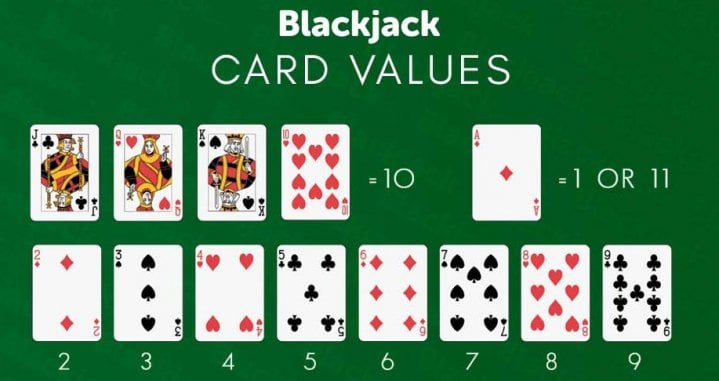
So, how do you start building your score to 21? What are the blackjack card values? Well, numbered cards are worth their face value (a three is worth 3, a six is worth 6), and Jack, Queen and King – called face cards - are worth the same value of 10. That’s the easy bit, which just leaves the ace. An ace is worth 1 or 11, depending on the player’s choice or what is mathematically possible, so the total score does not exceed 21.
Let’s look at an example of that. If you have an Ace and a 7, the score can be 8 or 18 – you choose. If you decide to continue and get a 4, the ace will automatically become 1, and the total score will be 7 1 4 = 12. Obviously, having an ace at the start gives you a strong position to take another card, as you have the insurance of reverting the ace to a score of 1 if you get a high card. But we’ll get to tactics in a few paragraphs’ time.
Basic Blackjack Terminology
You need to remember several words when you’re playing blackjack. Here’s a handy list of the terminology you might hear:
- Hit – Asking the dealer for another hole card.
- Stick / Stand – Choosing not to take another hole card.
- Bust – When you take a card, and it pushes your score over 21.
- Push – You got the same score as the dealer, so your original stake is returned.
- Split – When your initial cards are the same (2 6s, 2 Jacks), you can split them and start with two hands. You get a card for each new hand and effectively get double the chance to win.
- Double Down – Doubling your original bet and accepting another card.
- Surrender – Deciding to concede before playing in exchange for 50% of your original bet back.
- Soft hand – When your total includes using an ace as 11.
- Blackjack – Getting 21 with only two cards: an ace and a face card or a 10. The reward for blackjack is usually a payout of 3:2.
For additional terms, go to our Blackjack Glossary and Terminology article.
Basic Blackjack Actions
At most casinos with standard blackjack tables, you will have the following actions you can perform in certain situations during a blackjack hand:
- Hit: When you "hit," you request an additional card from the dealer to add to your current hand. You can continue to hit as many times as you like as long as the total value of your hand does not exceed 21.
- Stand: When you "stand," you keep your current hand and do not receive any more cards. This action is typically taken when you feel your hand is strong enough to beat the dealer or try to avoid going over 21.
- Double Down: When you "double down," you are doubling your initial bet and receiving one additional card. This action is typically taken when you feel your hand has a high chance of winning and want to increase your potential winnings.
- Split: When you "split," you divide a pair of cards into two hands, each requiring an additional bet. This action is typically taken when you have two cards of the same rank or two cards with a high potential of creating a winning hand. Some blackjack variants limit which hands can be split and how many times each can be split.
- Surrender: When you "surrender", you are giving up your hand and receiving half your original bet back. You can play an early or late surrender, depending on the blackjack variant. These actions are typically taken when you feel your hand has a low chance of winning and want to minimize your potential losses.
How a Blackjack Hand Plays Out
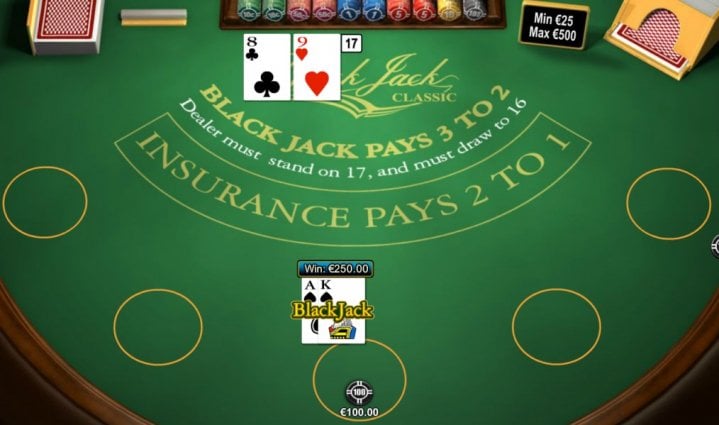
Once players have placed their original wager in the betting box (betting circle), the dealer gives each player two cards, faces down. The dealer also deals themselves two cards, with one dealt facing up. Remember, players win if they score higher than the dealer’s, but not exceeding 21. Players look at their cards and can request another card, stick with what they have, or surrender. Play moves from left to right as you sit, so each player takes their turn before the dealer plays. Remember, you’re only playing against the dealer!
You can early surrender, effectively conceding the game, only before extra cards have been received, resulting in a return of half your bet.
Players can request extra cards until they reach the value of 21, exceed this (thereby automatically losing) or decide to stick. Once players have taken turns, the dealer reveals their second card and plays with the same rules. The only exception is the “17” rule, whereby the dealer cannot take another card after their score hits 17. In contrast, they must take another card if their score is 16 or under. This gives them less flexibility.
Once the dealer has finished, scores are compared, and pay-outs occur if a player has won. If a player has the same total as the dealer, this is a draw – called a push - and the original stake is returned.
Hard vs. Soft Hand Rules
Check whether it uses hard or soft hand rules before sitting at a blackjack table online or at a land-based casino. S17" and "H17" are two different sets of rules that determine how a blackjack game is played when the dealer has a soft 17 (a hand that includes an Ace valued as 11). The rules can significantly affect the house edge and players' strategy. Let's break down each set of rules:
S17 (Stand on Soft 17)
In a blackjack game that follows the S17 rule:
The dealer stands when they have a soft 17. This means that if the dealer's hand contains an Ace and cards valued at 6 (such as Ace-6 or Ace-2-4), they will not hit for another card but will stand with a total value of 17.
Players benefit from this rule because it increases the likelihood that the dealer will bust (exceed 21) when they have a weak initial hand. Players can make more conservative decisions based on the dealer's upcard.
H17 (Hit on Soft 17)
In a blackjack game that follows the H17 rule:
The dealer must hit when they have a soft 17. This means if the dealer has an Ace and cards valued at 6, they will take an additional card.
This rule is less favorable to players because it gives the dealer an extra chance to improve their hand. It lowers the chances of the dealer busting when they have a weak initial hand.
Note: As you can see, an S17 blackjack table is generally considered the more player-friendly option because it increases the likelihood the dealer busts. As for H17 blackjack rules, these give the dealer a better chance of improving their hand. Before you play blackjack online or at a casino, make sure you check which rules are in play. They can impact your blackjack strategy and the odds of winning. Most players prefer to sit at blackjack tables with S17 rules for their slightly better odds, but it's essential to adapt your strategy accordingly based on the rules in play.
Number of Decks of Cards Used
Aside from the hard and soft blackjack rules, you should also consider the number of decks a blackjack table uses before deciding to play. The number of decks in play will impact the house edge and, potentially, your strategy. In short, the fewer decks used at a blackjack table, the better the player's odds.
- Single Deck Game: A table utilizing just a single deck of cards has the lowest house edge. It also makes life easier for anyone considering card counting. To offset those advantages, many tables will have stricter rules. For instance, single-deck blackjack games often limit when you can double down or split.
- Double Deck Game: On occasion, you may even run into double deck games at online casinos. These offer more favorable odds when compared to tables using multiple decks. Furthermore, the blackjack rules on double-deck games may prove more liberal than single-deck games.
- Multiple Deck Game: The most common blackjack tables will utilize multiple decks of cards. Generally, you can expect to run into tables with four to eight decks of cards shuffled together. Most casinos prefer using multiple decks to make it difficult for players planning to use card counting as a blackjack strategy. It also increases the house edge, so obviously, casinos consider that as well.
Often, you will not get much of a choice regarding how many decks are used. Most online casinos, land-based establishments in Las Vegas, and other popular gambling destinations will primarily offer multiple-deck blackjack games with four or more decks. If you do come across single or double-deck blackjack tables,
Blackjack Insurance Bets
Insurance bets in blackjack are side bets that players can make when the dealer's upcard is an Ace. The insurance bet pays 2-1 if the dealer has a blackjack, a hand of an Ace and a 10-point card. The insurance wager is optional, and the bonus payout is typically equal to half of the player's original bet.
For example, if a player's original bet is $10, the insurance bet would be $5. If the dealer has a blackjack, the player would lose their original $10 bet but win $10 on the insurance bet, resulting in a net loss of $5. If the dealer does not have a blackjack, the player loses the insurance bet but still has the option to play out their hand.
The purpose of the insurance bet is to give players a way to protect their original bet against the dealer having a blackjack. However, it is generally not a good idea to take insurance because the odds of the dealer having a blackjack are not in the player's favor. It's a negative expectation bet, which means that in the long term, the player will lose more money than win if taking insurance.
Splitting Blackjack Hands
Splitting blackjack hands is an option that players can use when they have hands that meet certain criteria. This allows players to split their hands into two separate hands. This option requires players to increase their bet as each newly created hand requires its wager. The splitting rules can vary depending on the type of blackjack being played, so it is important to check them before playing.
- Splitting Tens: Jacks, queens, kings, and 10s are all considered ten points. Most online casinos will allow players to split them. However, in some games, the cards must be of the same rank, such as a pair of kings or 10s, but not a king and a 10.
- Resplitting: This allows players to split a pair, usually no more than three times per hand. Some variants may only allow one split, six, or unlimited splits. For example, a player can resplit a pair of 8s, then split them again if they get another eight as the second card for one of the split hands.
- Resplitting Aces: This rare rule tends only to be used in Late Surrender games.
- Additional Draw after Splitting Aces: In most cases, after splitting aces, players are only allowed to draw one card for each ace. This limitation is lifted in some variants, and players can keep drawing.
- No Split Aces: A rare rule that does not allow splitting aces. If a player encounters this rule, avoiding playing that blackjack variant is best.
- Split Anytime: This rule allows players to split after hitting. For example, if a player is dealt 10, 2 and hits another 2, they can split the deuces into separate hands.
- Split any 16: This rule allows players to split any combination of 16, regardless of the cards' values, such as 10 and 6, Ace and 5, or 9 and 7.
- No Splits on 4, 5 or Ten: This rule is used in UK casinos.
- Discard Split Hand: A rare but useful rule that allows players to discard one of the split hands.
Doubling Down
Doubling down in blackjack is a move that allows players to double their initial bet in exchange for one more card. This move can only be made after the initial two cards have been dealt and before any additional cards are drawn. The idea behind doubling down is to increase the potential payout on a strong hand or to improve a hand that has the potential to beat the dealer's hand.
The advantage of doubling down is that it allows players to win more money on a hand they believe is strong. It also allows players to improve a hand they believe has a good chance of winning.
The disadvantage of doubling down is that it also increases the risk of busting (going over 21) and losing the entire bet. It can also be a disadvantage if the player's hand is not as strong as initially thought.
It's important to consider the dealer's upcard when deciding whether or not to double down. Generally, it's a good idea to double down with a hand value of 10 or 11 when the dealer's upcard is a card with a low value (2-6)
Blackjack Tips and Tricks
Obviously, blackjack is a game of considerable chance. You can’t influence the cards you or the dealer receives, and if you’re playing online, you can’t try and count the cards. But you can follow a few tips to tip the odds slightly more in your favor. Here are 10 of the best.
- Practice for free: Take advantage of the practice mode offered by online casinos to hone your skills before risking your own money.
- Use a strategy chart: Keep a basic blackjack strategy chart nearby while playing online to ensure you make the best decisions.
- Set a budget: Decide in advance how much you want to spend on your blackjack session and stick to it.
- Choose the right table: Select tables with minimum bets no higher than 5% of your budget.
- Follow basic strategy: Hit hands lower than 17 when the dealer shows 8, 9, 10, or face cards, and stand on hands above 11 when the dealer shows 4, 5, or 6.
- Avoid insurance bets: Insurance bets against the dealer hitting a blackjack are considered a "sucker's bet" and should be avoided.
- Take advantage of doubling down: Double down with a ten-value card against a dealer's nine or lower and with any hand valued at eleven.
- Know when to split: When dealt two cards of equal value, split them into new hands by matching your original bet. Avoid splitting 10s or 5s, but always split 7s or 8s when the dealer has a lower-value hand.
- Use progressive betting: Increase your bets when on a winning streak and decrease them when on a losing streak.
- Opt for live dealer games: Live dealer casino games allow you to monitor the game more closely and even count cards, which is impossible with casino software games.
Using Blackjack Basic Strategy
For the best chance of winning blackjack sessions, you should always adopt a basic blackjack strategy. This set of guidelines ensures you're always making optimal decisions based on your cards and the dealer's upcard. A basic strategy player will use a blackjack strategy chart to determine the best possible action for each situation. Following this will minimize the casino house advantage and maximize the player's chance of winning.
What the card the dealer shows and your current hand will determine whether you hit, stand, double down, split, or surrender.
Basic strategy is a complex topic, so we suggest you check out our Blackjack Strategy Charts article to understand it in more detail and fully understand how to play blackjack most optimally. However, the fundamentals of a basic playing strategy are:
- Always hit if your hand has a value of 12 or lower.
- Always stand with a value of 17 or higher.
- Consider what the dealer shows for his up card if you have a value of between 13 and 16.
- Stand if you have a value in the above range and the dealer shows a 2 through 6.
- In the same manner, hit if the dealer's up card is 7 through Ace.
There are additional rules concerning doubling down (doubling your bet) and splitting pairs (when you have two cards of equal value and type). Make sure you check out basic blackjack strategy in full to understand when and what you should do.
Pros and Cons of Blackjack
As with any casino game, playing blackjack has pros and cons. In our opinion, the pros far outweigh the cons, especially if compared to other casino table games. You have more control over the outcome, and while skill will not determine if you win or lose, it will help you minimize losses.
The Pros of Playing Blackjack
When you play blackjack, these are the advantages you can enjoy:
- Low House Edge: Blackjack is known for having one of the lowest house edges among casino games when played with the right strategy. Skilled players can reduce the house edge to less than 1%, making it one of the most favorable games for players.
- Skill-Based Game: Blackjack is skill-based, unlike many casino games that rely primarily on luck. Players can improve their odds of winning by learning and using basic strategy.
- Variety of Variations: There are numerous blackjack variations in traditional casinos and online. This variety allows players to choose the version they are most comfortable with or that offers the best rules and odds. At online casinos, in particular, you can choose from an array of different variations.
- Social Aspect: Blackjack is often played at tables with other players, creating a social and interactive atmosphere in brick-and-mortar casinos. Many online blackjack games also have a chatroom, which aids the table's overall atmosphere.
- Potential for Profit: Skilled players who use proper strategy and card counting techniques can profit from playing blackjack, especially in favorable conditions. As mentioned, it has the lowest house advantage, making it the optimal game for most professional gamblers.
The Cons of Playing Blackjack
Even if you know how to play blackjack to a good standard, there are still disadvantages to consider:
- House Rules: Blackjack rules can vary between casinos, and even slight rule differences can affect the house edge and player strategy. Players need to adapt to the specific rules of their game.
- Card Counting Difficulty: While card counting can be effective, learning and implementing it effectively is also challenging. Moreover, many casinos employ countermeasures to detect and discourage it.
- Emotional Stress: Blackjack can be emotionally stressful, especially when players experience losing streaks or make incorrect decisions. Managing emotions and maintaining discipline are essential.
- House Advantage: Despite the low house edge, the casino still has an advantage over players in the long run. This means that, over time, players are expected to lose more than they win.
How to Get Started Playing Blackjack
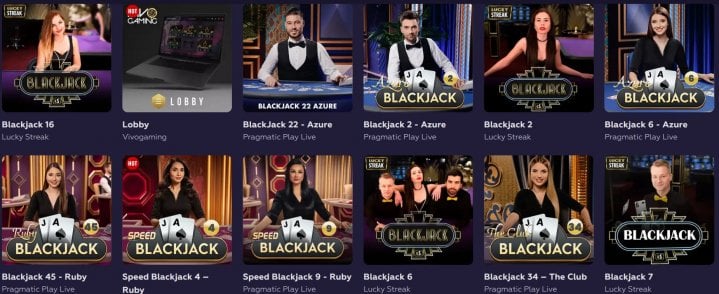
Many online casinos offer blackjack for beginners, more experienced players, and even high rollers. If you’re just starting, look for low stakes and a high welcome bonus. There are plenty of free blackjack games for beginners, so you can practice a bit before you start putting down actual stakes. This would be a strong option if you’re considering getting into blackjack.
And remember: while splitting, doubling down, surrendering, and the use of the ace are additional rules to get used to, the basic formula for blackjack is easy to learn and remember, and this makes the game a great starting point for those people who are new to online gambling. So get yourself online and give it a go!
Different Variations of Blackjack Table Games Online
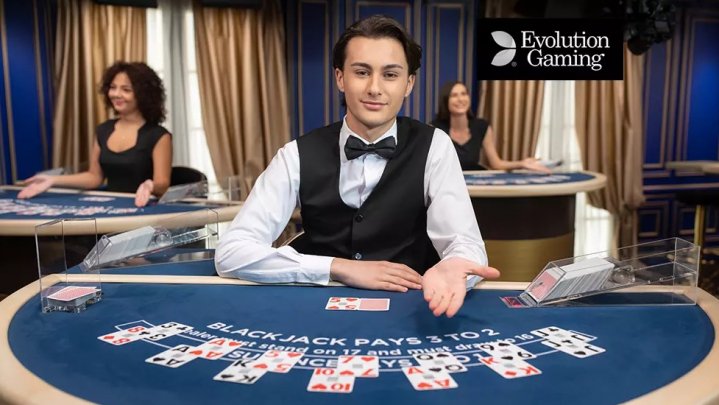
If you give the game of blackjack a chance and plan to play the game at online casinos rather than at a brick-and-mortar casino, you have plenty of choices regarding variations. Most tables at an online casino will offer standard variations across a wide range of betting limits. This includes tables featuring both S17 and H17 rules.
However, the beauty of playing at online casinos is you have access to blackjack variations you will not find at land-based casinos. The continued evolution of software allows iGaming developers and live casino suppliers to get creative and create interesting variations of casino games. As long as you know how to play blackjack, the rules of these variations will not be much different.
The following are some of the blackjack games you will find at online casinos:
- All Bets Blackjack (Playtech Live): This is a variation of blackjack that will appeal to players who enjoy placing side bets. This eight-deck variation offers seven side bets you can place independently of the main game. Just remember, each side bet will have a different RTP from the main game. The casino has a bigger house advantage when playing a side bet.
- Infinite Blackjack (Evolution): This is one of numerous live casino blackjack games that utilize unlimited seat technology. You never have to queue for a set like on 7-seat blackjack tables. All players playing will play the same hand dealt by the dealer. While there are obvious advantages, you cannot gain information from cards dealt to other players. Infinite Blackjack also has four side bets.
- Blackjack Switch: This is an interesting variation of blackjack that lets players do what they have always wished they could - swap their cards. Each player plays two hands in the same blackjack hand and can opt to 'switch' the top two cards in each hand. To compensate for this new benefit, the rules differ. If the dealer is showing a 22, this results in a push for all non-busted hands. Additionally, a "'Blackjack' only pays 1:1 instead of 3:2.
- Free Bet Blackjack (Evolution): Another popular live blackjack game, Free Bet Blackjack allows you to utilize free bets of specific doubles and splits. You can double down if your first two cards equal 9, 10, or 11. You can also have a free split if you have already split your cards and have additional pairs. To pay for these free bets, if the dealer's hand is 22, it is a push.
- Random Multiplier Blackjack Games (Multiple): Many top live casino suppliers have released games allowing players to win random multipliers. Lightning Blackjack (Evolution) and Quantum Blackjack (Playtech Live). The former has a side bet that pays 2x to 25x your stake if you win two consecutive hands. As for the latter, this features three random cards with a 10x multiplier value that can stack to deliver a bumper bonus payout.
- Those are just some of the different blackjack variations you can find online.
Start Playing Blackjack Casino Games Online Today

Now that you know how to play blackjack and understand the rules, you're probably considering playing the popular casino blackjack table game yourself. You will want to experience placing your casino chips in the hope you draw cards better than the dealer.
This is where we step in, as we can guide you on the best online casinos that allow you to play blackjack online. In fact, most casinos will offer blackjack, whether in an RNG (random number generator) or live format. To establish the best platforms to enjoy a game of blackjack, read through some of our top-rated casino reviews.







